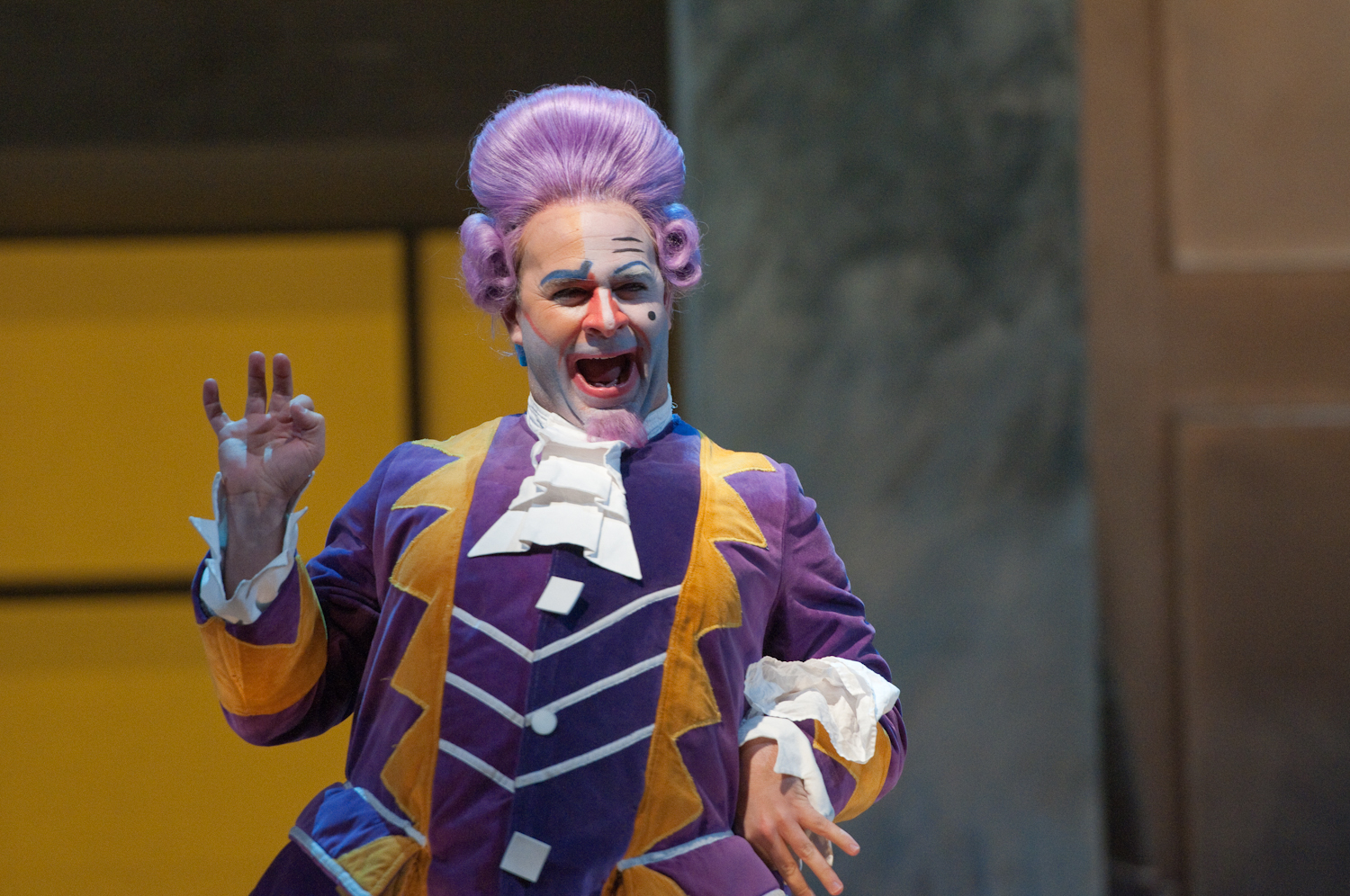Rossini’s 1817 Cenerentola is roughly the Cinderella tale we all know, with a few important twists: The wicked stepmother is instead a stepfather, Don Magnifico; and the Prince and his valet, Dandini (disguised as each other, the better to find a woman who’ll love the Prince for himself), spend most of Act 1 at Magnifico’s house checking out Cinderella incognito. The two-and-a-half-hour opera’s pacing is glacial, which is Rossini’s fault; that this goes largely unalleviated is director Joan Font’s.His strategy—papering over the problem rather than really solving it—is merely to pile on distractions. In an attempt at a sort of Sendakian whimsy, a half-dozen extras are costumed as rats. When they’re doing something, performing stagehand duties and functioning like little mures ex machina, they’re charming. When they just strike poses, they get in the way. While we’re on the subject: Mechanical motion in time with the music, a device so many directors of comic opera seem addicted to, is never funny or interesting. In one egregious example, a sextet late in Act 2, the choreography of sitting, standing, and hand gestures is ridiculously overelaborate to the point of being inconsiderate to the singers. Designer Joan Guillen’s set itself is square and gray (the color of cinders), but the popping color accents in his Seussian costumes are borrowed from the palette of Peeps.What this production does boast is singing—specifically, three lessons in how to turn the profuse ornamentation of Rossini’s vocal lines into expression and character. Brett Polegato, as Dandini, makes quicksilver, improvisatory comedy out of it. Singing the title role in the opening-night cast, Daniela Pini turns the scales and roulades of her happy-ending aria into pure joy, overflowing with panache. The production’s real find is Rene Barbera, making his Seattle Opera debut as Prince Ramiro. The brightness and effortlessness of his tenor, especially his sparkling high notes, make it clear just how good it is to be the Prince; it’s privilege embodied in sound. A character who never hears the word “no” sings like he’s never thought the word “can’t.” stage@seattleweekly.com
Rossini’s 1817 Cenerentola is roughly the Cinderella tale we all know, with a few







